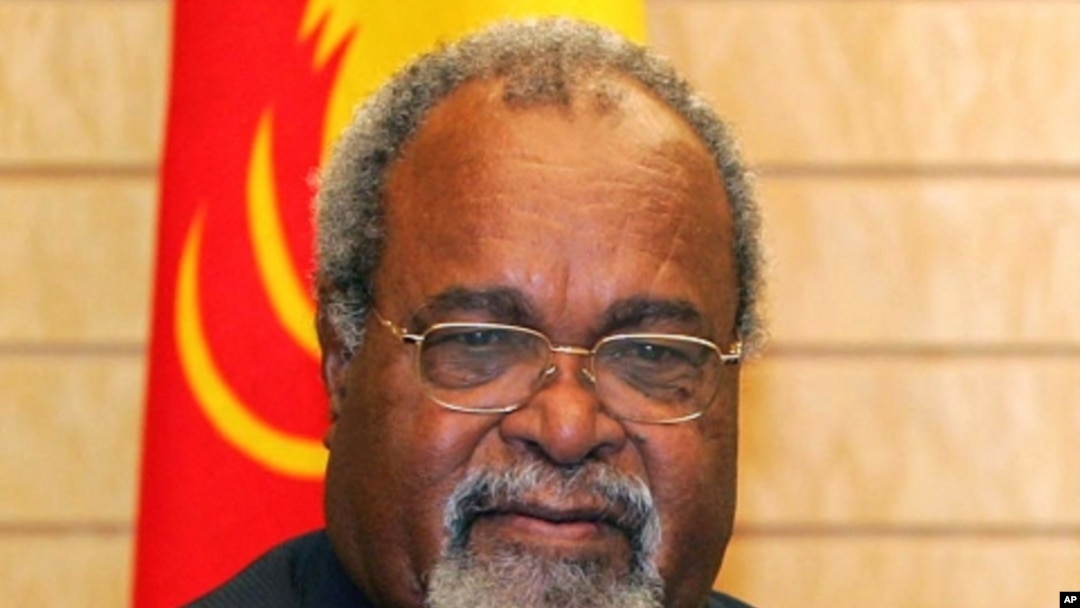Papua New Guinea's ailing former leader Sir Michael Somare says he is still the country's prime minister despite being ousted by parliament. Last month, Sir Michael was dumped as Prime Minister while he was recovering from heart surgery in Singapore. His family had earlier announced his resignation without consulting the 75-year-old leader.
But now the man known as the ‘Grand Chief’ of Papua New Guinea says he wants his job back and intends to fly home to recover what he believes is rightfully his.
His son, Arthur, who is also a parliamentarian, says his father has been unfairly treated. But he says given his father's age and ill health, he would like him to step down on his own terms.
“We wanted him to retire that's absolutely correct," admits Somare. " But that does not give anyone the authority to push him out or to retire him, essentially he has to resign from office and I still want that to happen because of his health condition and because of his age as well, there is no issue there.”
Peter O’Neill replaced Sir Michael as prime minister. He has firmly rejected his veteran rival’s claim to the leadership.
The dispute could soon be settled by the country’s Supreme Court. It is expected to hand down its verdict later this month on the constitutionality of Mr. O'Neill's appointment.
These are crucial times for Papua New Guinea's 6.5 million people. A boom in resources is delivering unprecedented economic growth. Mineral deposits, including oil, gold and copper, account for nearly two-thirds of the nation’s export earnings.
There are abundant reserves of natural gas too. Overseas investors are playing a key part in the country’s industrialization, with Chinese mining companies responsible for huge development projects.
Analysts worry, though, that protracted leadership squabbles, as well as corruption, could undermine this newfound prosperity and its equitable distribution.
Australian aid officials say that despite the growth in the resources market, poverty remains a serious problem in the South Pacific country. An HIV/AIDS epidemic, which is one of the worst in the Asia-Pacific region, is also disrupting economic growth.
The Melanesian country, which gained independence from Australia in 1975, occupies the eastern half of the island of New Guinea.




